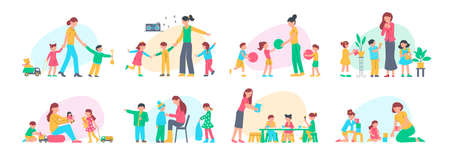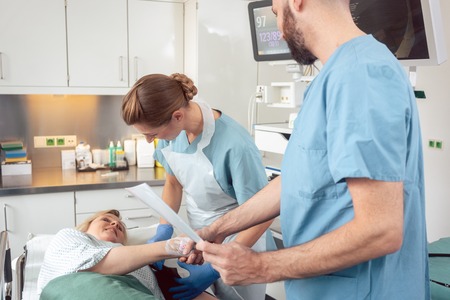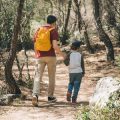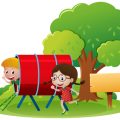Introduction: The Importance of First Aid in the Great Outdoors
There’s something quintessentially British about packing up the car, donning wellies, and heading off to the countryside for a family camping adventure. Whether you’re pitching a tent amidst rolling hills dotted with wildflowers or setting up camp beside a tranquil lake, these moments create cherished memories for years to come. Yet, the beauty and unpredictability of the British outdoors bring their own set of challenges—especially when little ones are involved. From unexpected tumbles on muddy footpaths to bee stings in blooming meadows, minor mishaps can quickly turn into stressful situations if you’re unprepared. This is why every parent venturing into nature should be equipped with essential first aid know-how. Being first aid savvy isn’t just about managing emergencies; it’s about giving your family the confidence to explore, knowing you can handle whatever comes your way. In the great outdoors, where help may not be just around the corner, your knowledge and calm response become invaluable. As we delve into the key first aid skills every parent should master before zipping up that tent in the British countryside, let’s remember: preparedness is not only practical—it’s an act of care that transforms simple outings into safe and joyful adventures.
2. Recognising and Responding to Common Outdoor Injuries
There’s a unique kind of magic woven into family camping trips—a tapestry of birdsong, woodland scents, and the gentle crackle of the campfire. Yet, amidst all this enchantment, little mishaps can easily occur. As a parent, knowing how to calmly identify and respond to common outdoor injuries will help keep those cherished moments on track. Below is a gentle guide to typical camping ailments—cuts, scrapes, stings, and sprains—and how you might manage them with both confidence and care.
Cuts & Scrapes
The odd tumble or bramble scratch is part and parcel of outdoor adventures. If your child comes running with a graze or cut:
- Clean the wound: Rinse gently with clean water to remove any dirt or grit.
- Stop any bleeding: Apply gentle pressure with a sterile pad or clean cloth.
- Dress the wound: Cover with a plaster or gauze as appropriate, keeping it snug but not tight.
When to Seek Help?
If the cut is deep, won’t stop bleeding after 10 minutes of pressure, or there’s debris you can’t remove, it’s best to seek medical attention.
Stings & Bites
The British countryside is home to its fair share of insects—from midges by the lakeside to wasps in the hedgerows. If stung or bitten:
- Remove the sting (if present): Gently scrape sideways with a card; avoid using tweezers for bee stings as this may squeeze more venom in.
- Soothe the area: Wash with mild soap and cool water, then apply a cold compress.
- Monitor for allergies: Watch for swelling beyond the sting site, difficulty breathing, or any signs of anaphylaxis—call 999 if these appear.
Quick Reference Table
| Injury | Immediate Action | When to Seek Help |
|---|---|---|
| Cuts & Scrapes | Clean, apply pressure, dress wound | If deep/bleeding won’t stop |
| Stings & Bites | Remove sting, wash area, cold compress | If allergic reaction occurs |
Sprains & Strains
A slip on mossy ground or an awkward landing after leaping over a log can result in twisted ankles or wrists. The classic “RICE” method works wonders:
- Rest: Encourage your child to sit down and rest the injured limb.
- Ice: Apply something cold (a wrapped ice pack or even a bag of frozen peas from the cool box) for up to 20 minutes at a time.
- Compression: Wrap lightly with an elastic bandage if you have one—never too tight.
- Elevation: Raise the limb above heart level if possible.
A Word of Reassurance
The great outdoors naturally brings bumps and bruises. With gentle reassurance and these practical steps close at hand, you’ll find most mishaps can be managed calmly—leaving you free to soak in those glowing campfire evenings once again.

3. Essential First Aid Kit Essentials for UK Family Camping
When venturing into the lush British countryside, the weather’s whims and remote landscapes demand careful preparation—especially for families with little explorers in tow. A well-stocked first aid kit isn’t merely a precaution; it’s your peace of mind against unexpected bumps and scrapes beneath the emerald canopy or by a misty lakeside. Curating your family’s kit for UK camping means blending classic supplies with thoughtful additions tailored to local conditions.
Weather-Ready Basics
The British climate is famously unpredictable, so waterproof plasters and dressings are a must, keeping wounds safe from drizzle or sudden downpours. Include thermal blankets to ward off chills after an unexpected splash in a stream or a rain-soaked walk back to camp. Don’t forget insect repellent and sting relief cream—brambles and midges are as much a part of the experience as birdsong at dawn.
Rural-Specific Necessities
Out in the wilds, access to medical help can be delayed, making self-sufficiency vital. Add a tick removal tool (for those woodland wanderings), antiseptic wipes, and cleansing saline pods to keep cuts clean in mud-prone fields. Pack a small pair of blunt-ended scissors, safety pins, and medical tape; these will help you improvise when nature throws you a curveball.
Child-Friendly Additions
Children’s skin is delicate and their needs unique. Carry age-appropriate pain relief (such as liquid paracetamol or ibuprofen), fun-patterned plasters for morale, and sunblock formulated for sensitive skin—even under cloud cover, UV rays can catch you unawares.
Personal Touches & Local Guidance
No kit is complete without personal medications for allergies or chronic conditions, clearly labelled with instructions. A printed guide to basic first aid, especially one endorsed by British Red Cross or St John Ambulance, adds confidence when every second counts. By packing thoughtfully for the UK’s distinctive environment, parents can embrace every camping adventure with calm assurance—ready for whatever nature’s tapestry weaves into your family story.
Managing Allergic Reactions and Asthma in the Countryside
As you wander through the patchwork of wildflower meadows and ancient woodlands, the British countryside unfolds with beauty and tranquillity. Yet, away from urban comforts, parents must be ready to sensitively manage allergic reactions and asthma incidents—especially when help is not just around the corner. The air may carry pollen or insect stings may strike unexpectedly, so vigilance and preparation are essential companions on your family adventure.
Spotting the Signs: Quick Recognition Matters
Children may not always describe their symptoms clearly. As a parent, being able to recognise the early signs of an allergic reaction or asthma attack can make all the difference. Look out for:
| Condition | Early Signs | Severe Symptoms |
|---|---|---|
| Allergic Reaction | Itchy skin, hives, swelling around eyes or mouth | Difficulty breathing, fainting, swelling of tongue/throat |
| Asthma Attack | Coughing, shortness of breath, wheezing | Lip/face turning blue, severe difficulty breathing, confusion |
Your Essential First Aid Kit: Be Prepared
When camping far from city pharmacies, pack a thoughtfully stocked first aid kit. Include antihistamines (tablets and creams), an adrenaline auto-injector if prescribed, and spare inhalers (both reliever and preventer). Keep these items easily accessible at all times—don’t bury them at the bottom of your rucksack.
Calm Response: What To Do in an Emergency
If your child experiences a mild allergic reaction or asthma flare-up:
- Remove them from the trigger if possible (move away from flowering plants or smoky campfires).
- Give medication promptly—antihistamines for allergies, inhalers for asthma.
- Encourage slow, steady breaths; keep them calm by speaking gently.
- If symptoms escalate or do not improve rapidly, use an adrenaline injector for severe allergies or seek urgent medical help.
- Know your location: pinpoint your OS grid reference or what3words address to guide emergency services efficiently.
Sensitive Handling: Comfort and Reassurance
The open air can feel overwhelming during a health scare. Cuddle your child in a soft blanket, speak soothingly about familiar things—a favourite park at home or a recent picnic—to ground them. Stay composed; your calm presence is as vital as any medicine in your kit.
5. Keeping Calm and Carrying On: The Art of Reassuring Children
There’s something uniquely soothing about the British countryside—the gentle rustle of leaves, the soft patter of rain on canvas, and the laughter of children exploring wildflower meadows. Yet even amidst this tranquility, minor mishaps are all part and parcel of family camping. When a scraped knee or unexpected bee sting brings tears, your calm response can transform a moment of distress into a lesson in resilience.
Setting the Tone with Reassurance
Children look to their parents for cues; your composed manner is often the first salve for their worries. Speak softly and maintain eye contact, offering a steady hand and a reassuring smile. Avoid dismissing their fears—acknowledge that it hurts, but remind them that they’re safe and you’re there to help.
Practical Soothing Techniques
A gentle touch goes a long way—dab wounds carefully, apply plasters adorned with cheerful patterns, and tell a favourite story while you work. If possible, involve them in simple tasks such as holding the bandage or counting deep breaths together. This sense of involvement restores their confidence and helps distract from discomfort.
Keeping Spirits High in Nature’s Embrace
The British love of ‘keeping calm and carrying on’ finds its purpose here. Once the incident is managed, draw attention back to the wonders around you—the call of a wood pigeon, the scent of damp earth after rain. Encourage children to recount their adventure so far, turning mishaps into campfire tales they’ll retell with pride. In this way, first aid becomes not just about plasters and antiseptic wipes, but about nurturing courage and building cherished memories beneath wide open skies.
6. When and How to Seek Additional Help
Even the most well-prepared parent, armed with first aid skills and a fully stocked kit, must recognise when a situation requires more than what can be managed in the field. Camping in the UK’s enchanting landscapes – from the wild Scottish Highlands to the rolling hills of the Lake District – is an adventure, but it also means help might not always be on your doorstep. Knowing when to ring 999, contact mountain rescue, or make your way to the nearest A&E is essential to ensure the safety and wellbeing of your family.
Understanding Emergency Services
If you are faced with a life-threatening emergency – think severe bleeding, unconsciousness, suspected spinal injury, or breathing difficulties – don’t hesitate: dial 999 immediately. The UK’s emergency services are highly trained and will guide you through crucial steps while help is on its way. If you’re in remote countryside or mountainous terrain and someone is injured or lost, contacting mountain rescue via 999 is vital. It’s worth noting that mobile signal can be patchy in rural spots, so carrying a charged phone and knowing your exact location (using apps like OS Locate or What3Words) can save precious time.
Visiting the Local A&E
For less urgent yet still serious concerns – such as broken bones without major bleeding, persistent vomiting, or minor burns – heading to the nearest Accident & Emergency department is often the wisest course. Before setting out on your camping trip, familiarise yourself with local healthcare facilities. Jotting down postcodes for nearby hospitals or minor injury units can make all the difference when stress levels are high.
Your Family’s Wellbeing at Heart
As a parent, your calm presence is as important as your practical knowledge. Assess each incident with care: listen to your instincts, observe symptoms closely, and never downplay something that feels ‘not quite right’. When in doubt, it’s better to err on the side of caution. Whether it’s making that call to 999 under star-studded skies or comforting little ones en route to A&E, remember that prioritising your family’s health is always the bravest choice. In doing so, you transform outdoor misadventures into stories of resilience and wisdom by the campfire.


